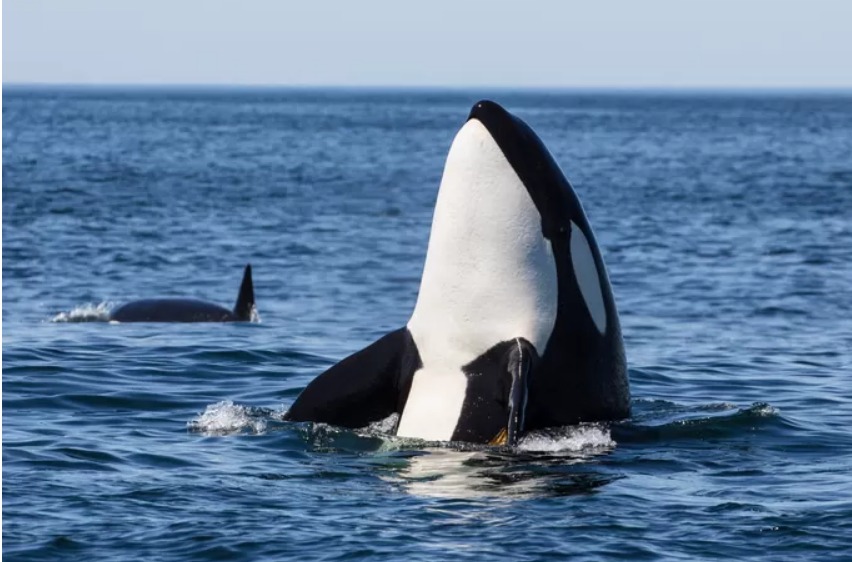For several years now, populations of orcas, also called killer whales, have been behaving strangely in the Mediterranean. They attack boats, modest-sized yachts or sailboats generally, and these hyper-intelligent animals certainly do not confuse them with prey. Last weekend, it almost turned into a tragedy.
The Alboran Cognac was sailing peacefully in the waters of the Strait of Gibraltar, around 9 a.m. last Sunday, when suddenly there were more knocks on the hull and rudder. Very quickly, the boat took on water, much to the horror of the two people on board. The yacht had become the toy of a band of orcas, the number of which could not be estimated. These marine mammals, ultimate predators of all the seas, weigh between 3 and 4 tonnes and 5 to 8 m long. Only one of them is perfectly capable of damaging a pleasure boat, if it feels like it.
Attacks that have increased since 2020
Fortunately, an oil tanker passing by was able to come to the aid of the two unfortunate boaters. Taken in tow, the yacht took on so much water that it ended up sinking.
Since 2020, hundreds of similar encounters between boats and orcas have been recorded off the southern coasts of Spain and Portugal, recalls Science Alert. They never caused any casualties, but the mammals damaged many boats, and several were sunk. Without this behavior having an explanation. In any case, the orcas are far too intelligent to confuse these boats with their usual prey — which even includes whales.
However, scientists have long suspected that this is a transmitted behavior. An orca has figured out how to destabilize a boat, and even immobilize it by destroying its rudder. And she passed on this “know-how to other killer whales, to the point of making it a real custom of the populations of the strait – these animals live in extended family groups.
Animals having fun (at our expense)
It was thought to be aggression, possibly after an orca was injured by a propeller or a collision with a yacht. But this thesis is now rejected by behaviorists. Orcas do target boats, but probably because there is something “stimulating and exciting” for them in these attacks. They play and teach this behavior to other members of their group so that they can practice it together.
“Orcas are very tactile and sensitive to touch,” Andrew Trites, director of the marine mammal research unit at the University of British Columbia in Canada, explained to Business Insider. “During my research, I was struck by how often they touch and collide while swimming. It’s like for humans. We need to be touched. [In case of encounter] you cannot outrun an orc. You have to turn off the engine, raise the rudder and keep a low profile as much as possible.” Hoping that they soon find something more distracting than the thin shell that separates you from their games.



